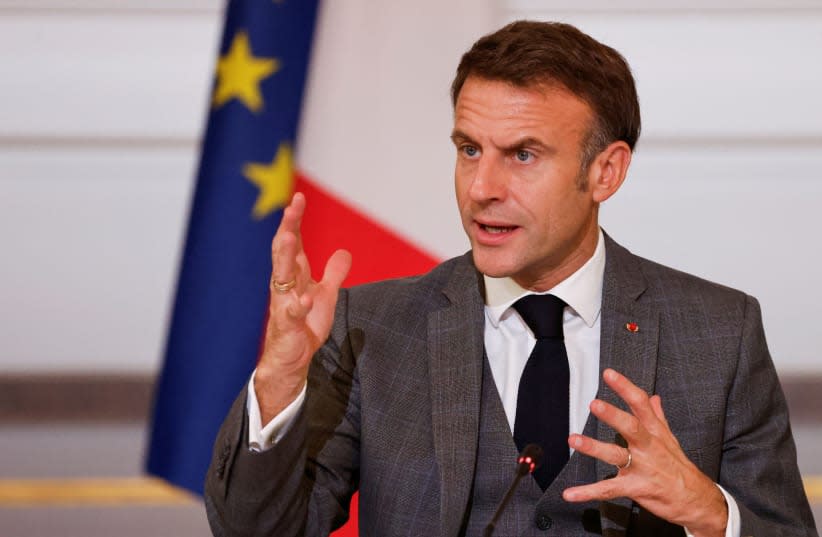In the wake of the La Grande-Motte Synagogue attack and political turmoil, France Central Consistory vice president and Marseilles Consistory president Michel Cohen Tenoudji expressed concern to The Jerusalem Post about the future of French Jewry and fate of the French Republic.
After the August 24 arson terrorist attack on the Beth Yaacov synagogue in southern France, the Jewish community was shocked and outraged, said Cohen Tenoudji. The attack by the 33-year-old Algerian man, which wounded a police officer, amplified fears about rising antisemitism in the country.
“The Jews are beginning to lose hope for a future in France,” said Cohen Tenoudji. “Jewish life is rich and prosperous in France but everyone holds their breath wondering how much longer this will last.”
The Jewish leader, one of the Central Consistory’s vice presidents, referenced Jewish Community Protection Service (SPCJ) statistics which indicated that antisemitic incidents in the Republic had increased by 1000% in 2023 compared to the previous year.
The French Jewish community is vigilant in its protection of what Cohen Tenoudji described as a “serene” but “worried” Jewish life, with synagogues equipped with secure entrances, video and electronic surveillance, and the close collaboration of groups like SPCJ with law enforcement.

The government is investing a great deal of resources into protecting its Jewish citizens, according to Cohen Tenoudji, keeping watch and adapting according to security threats.
Yet the government itself has been in a state of turmoil since the second round of July elections, which saw the success of the left-wing New Popular Front coalition, which included Jean-Luc Mélenchon’s La France Insoumise (LFI). With the center and right-wing blocks almost having an equal share of the National Assembly’s seats, political deadlock continued last Monday as President Emmanuel Macron refused to accept NPF’s Prime ministerial candidate.
Rising extremism amid political uncertainty
Amidst the country’s political uncertainty, French Jews are concerned about the role of “extreme” political parties like LFI, which Cohen Tenoudji says have been brandishing anti-Zionism in their rhetoric.
Saying that LFI’s antizionism was nothing more than antisemitism, Cohen Tenoudji charged that “the far-left used its anti-Israeli hatred to create a deleterious climate in France.”
Cohen Tenoudji said that there has to be greater regulation of radicalism on social networks and work has to be done to address antisemitism spreading on university campuses.
Another political challenge for the country, which is also fostering antisemitism, is the threat of Islamic extremism.
“Evil is now anchored in our country, as in Europe, as in the world,” said Cohen Tenoudji. “It will take a lot of strength and courage to attack the roots of evil and eradicate this Islamic terrorism which is shaking the planet.”
Cohen Tenoudji said that the fight of the Jewish community is not just against antisemitism, but “also for France and the protection of all the values of the Republic in which we believe.”
With French Jewry facing these challenges, Cohen Tenoudji said that some considered departing France for Israel. He added that such a life-altering decision had to be made freely and out of a desire to live in the Jewish state, not informed by fear. “France’s greatest failure would be a departure of the Jews caused by fear.”
Following the terrorist attack, Cohen Tenoudji remained optimistic, concluding that “the Jewish people are resilient.”
